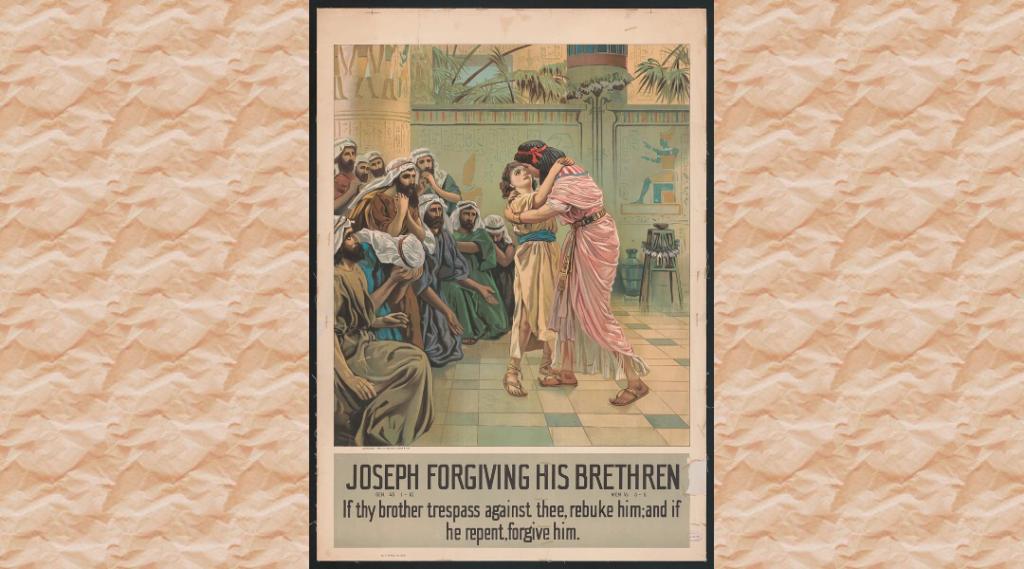Practical Spirituality series
We don’t understand well the role of forgiveness in our lives, and neither do new generations. It’s huge.
Ferreting out the basics on the topic of forgiveness is difficult. People have piled mountains of doctrine on mountains of tradition. For example, the Jews had no official doctrine regarding the afterlife. Heaven and Hell (Hades) were myths that came from other religions, namely Greek and Roman. Jesus spoke about them saying an afterlife without forgiveness was like being in a lake of fire.
Thomas Aquinas, meaning no disrespect, divided Hell into four parts in the 12th Century. By the 14th Century, Dante divided it into nine descending circles, and some people believe it. It’s fun for some to think your enemies will get their just deserts or maybe get scared into following God.

Jesus was incredibly forgiving. He overlooked people’s faults so he could minister to them. In Jesus’ final hours, he gave us two important indications of the future relative to forgiveness.
“Now judgment is upon this world; now the ruler of this world will be cast out. And I, if I am lifted up from the earth, will draw all men to Myself.”” – John 12: 31-32*
“And He said to them, “Go into all the world and preach the gospel [Good News of forgiveness] to all creation.” Mark 16:15
Two objectives here. First is to understand the doctrine of forgiveness and its impact, and the role of “Satan.” Second to understand when Jesus says regarding the timeframe of, “Now or within their lifetime.” Is it hours, days, weeks, months, years, centuries, anybody’s guess?
Jesus brought peace to those who follow God
Jesus entered the world with fanfare, with an angel declaring a great joy to all people. The angel declared on earth, peace among men of goodwill. (literal translation of Luke 2:14, not interpreted.)
The joy brought by Jesus is available to all people. This is a message of goodwill from God, and peace. But that peace of Christ will be found among people of goodwill. By people of goodwill is meant those that follow the ways of God so are in God’s favor. We find peace by following the ways of God as shown to us by Jesus. Go your own way and the path is treacherous, filled with bad relations with others.
Jesus clearly didn’t mean he brought international peace. The Romans soon chased the Jews out of their homeland. The peace of Christ might be described as a feeling of contentment, completeness, wholeness, well-being and harmony. This feeling might come from improved relations with your acquaintances and family. It could come from being forgiven right away. It might come from knowing you have a place in the Kingdom of God.
The meaning of forgiveness to the Jews
Jesus was Jewish and would have spoken within the framework of Judaism to the Jews, although he brought a fresh message. Did the Jews not have forgiveness before? They definitely did. If you offended someone, you were to go to the person and make it right. This might mean making restitution as well as asking forgiveness.
Jews didn’t consider offending God a major thing. You would make it right with God on the annual Day of Atonement by sacrificing an animal at the Temple.
Forgiveness and sacrifice
Temple sacrifice was not viable. The Temple was becoming a slaughterhouse and a place for moneychangers to recycle offered animals for a price. Jesus overturned their tables, saying they had made God’s Temple a place of business. The practice of a sacrificial lamb taking away the sins of individuals had outlived its archaic usefulness.
Jesus took the place of the sacrificial lamb by offering his own life. Thirty years later, the Romans completely destroyed the Temple, just as Jesus said would happen, and by 128 CE, the Romans had chased all the Jews out of the land. The Temple was gone and from that day forward, the Jews could no longer sacrifice at the Temple.
“And He said to them, “Do you not see all these things? Truly I say to you, not one stone here will be left upon another, which will not be torn down.”” Matthew 24: 2*
These events foretold by Jesus is our first tip about the timeline. He said the Temple would be destroyed, but it took another thirty years for that to happen. An era can be defined as anything from a few years, a few decades, or millions of years. Jesus apparently meant the era of his primary impact from the things he set in motion.
Jesus also said that if the Temple was destroyed, he would rebuild it in three days. By this he meant the coming of the Kingdom of God, a spiritual kingdom represented by him, after his three days in the grave.
The importance of forgiveness to non-Jews
Forgiveness wasn’t important only to the Jews. Jesus sent the Good News of Forgiveness to non-Jews. He sent his apostles with this message.
Those without forgiveness remain in the grip of guilt and shame. Shame is very destructive. It’s noted for causing severance of body image and low self-esteem, which drag us down. These and broken relationships hold us back from spiritual development and an abundant life.
The apostles likely taught the same thing about forgiveness as believed by the Jews. Go to the person you have offended and make it right. If you offend God, you can immediately go to God and make it right. Seeing a priest or making an offering or sacrifice is only necessary if you feel compelled to do so. Just ask God in prayer and you’re forgiven.
We remind ourselves of Jesus’ work in our lives by asking forgiveness in Jesus’ name. No misery and sacrifice required.
More on Jesus’ timing
Jesus’ return
The apostles seem to remain confused about Jesus’ return. Some told people it would be good not to marry, probably because Jesus was returning right away. In the article Advent Apologetics: Did the First Christians Expect Jesus to Return in Their Lifetimes? The author explains the apostles believed Jesus would return in their lifetimes, but gradually they realized this was not the plan. We have to abandon the belief that the apostles knew everything after Jesus’ crucifixion, and understand that they learned more over time.
Jesus returned to encourage his apostles and get them on their way. Jesus returned in the collective body of his followers, which took time to develop. We can think of the body of Christ, his gathering (church) as developing in the era of his primary impact from the things he set in motion. The apostles initiated the gathering, which is the body of Christ on Earth, although it remained incomplete during their era, and is still a work in progress. This is part of the spiritual Kingdom of God.
People in that time, and still today, want to know about Jesus’ return at the end of the age. Like somehow that’s important to know. It makes catching headlines. Will there be a time when most people are unsalvageable? Only God knows, as explained in Luke 21, Matthew 24-25, and John 14:3-18. God gives the people of the world time and grace to become who they will be.
Satan is done
Satan is another rich tradition that has developed over the centuries. Satan gets the blame for everything bad that happens to us. He is an endless aggravation. Really! We need to go back and understand what it means.
In the hours before his crucifixion, Jesus said in John 12: 31-32, “Now judgment is upon this world; now the ruler of this world will be cast out. And I, if I am lifted up from the earth, will draw all men to Myself.””
The ruler of this world was understood to be Satan. Satan is now cast out. The apostles spoke of Satan later, but we need to understand context. Satan wasn’t an entity to them.
The idea of Satan in the Hebrew Bible connotes an “accuser,” “hinderer” or “tempter.” It means temptation and evil doings rather than an entity. This would have been Jesus’ understanding.
Jesus said now … now we’re done with this. Forgiveness is at hand. We don’t need to live with the guilt and resulting shame that traps us in a downward spiral, as the Apostle Paul describes in Romans 7:23. Paul states that Christians have died to sin and Christ’s work has set them free from it.
Timeframe for the word “now” means that through Jesus’ immediate action of crucifixion and resurrection, this is accomplished. We are set free from doing evil and being accused, forgiven for our wrongdoing. It means that, even though we face temptations, we can overcome them by following the Way to live Jesus showed us. Forgiveness and living in the kingdom destroy temptation and wrongdoing. Satan no longer rules this world by trapping us in temptations and wrongdoing.
When the Apostles, who were Jews, refer to Satan, they are referring to the temptations that we all face, but are no longer trapped by them.
Conclusion
The timelines Jesus set are more apparent than we realize. We required the insight to understand.
Prophecy is locally situated in time and place. Most of the time the prophets and Jesus spoke of events that would occur in a relatively short timeframe. Sometimes the prophets spoke of the end of the world. That isn’t something that should trouble us, but we should know this is no excuse to injure others like there is no tomorrow. Our actions reveal our hearts.
Forgiveness is God’s grace toward us. All we have to do is ask, and we should do it in Jesus’ name for what he did for us.
Satan has no power over us. The power of Christ is bigger and by living as Jesus showed us we are protected from and overcome the power of Satan. Satan is an accuser who brings us guilt and shame, which is very destructive. Jesus offers us forgiveness that takes away that power to destroy our lives. Satan is a metaphor for all that tempts or accuses us.
Probability Space
What probability spaces can we open in our minds to focus on forgiveness? Every day I do things that might be harmful to others, but I apologize and am forgiven. Every day others do things that might be harmful to me, but they apologize and I forgive them. I rarely get offended and just chalk it up to whatever they are going through.
Can we be more forgiving each time we feel offended by someone? We should get an apology, but do we actually need one? Can we be like Jesus and overlook people’s faults so we can minister to them?
Potential Space
If you think creatively and allow your mind to wander and explore, how can we make the world more just and fair so there is less opportunity for people to offend others? Can we help others understand their actions better? Can we give them more tools for resolving conflict?
We have issues with acceptance, discrimination, and religious intolerance. We have major problems with income inequality. These are important issues to the Generation Z age group.
– Dorian
Our answer is God. God’s answer is us. Together we make the world better.
* Bible verses are from the New American Standard Version (NASB) unless noted.












